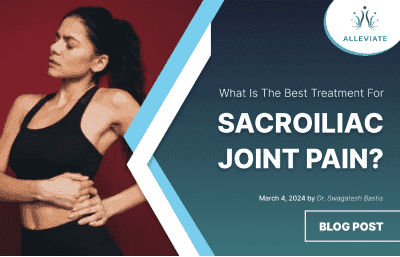

Spinal Stenosis
- Home
- Conditions
- Back & Spine Conditions
- Spinal Stenosis
The spine is a column of bones called vertebrae that provide stability and support for the upper body. It enables us to turn and twist. Spinal nerves run through openings in the vertebrae and conduct signals from the brain to rest of the body. The surrounding bone and tissues protect these nerves. If they’re damaged or impaired in any way, it can affect functions like walking, balance, and sensation.
Spinal stenosis is a condition in which the spinal column narrows and starts compressing the spinal cord. This process is typically gradual. If the narrowing is minimal, no symptoms will occur. Too much narrowing can compress the nerves and cause problems.
Treatment for Spinal Stenosis
Stenosis can occur anywhere along the spine. How much of the spine is affected can vary.


FAQ'S
Symptoms typically progress over time, as nerves become more compressed. You might experience:
- leg or arm weakness
- lower back pain while standing or walking
- numbness in your legs or buttocks
- balance problems
The first step in treating Spinal Stenosis is to make an appointment to see a Spine Specialist or a Pain Specialist for Spinal Stenosis diagnosis and to learn your Spinal Stenosis treatment options.
Video Spotlight
Blog
Surgery-Free Solutions
Expert Tips for Pain Management
Testimonials
Words From Our Patients
The treatment was very good and the doctor Faraz Ahmed was very kind to the patient and explained clearly the procedure of knee bilateral ha & botox And we were advised to do physiotherapy. We are very much satisfied. We would recommend this alleviate pain clinic.Thank you
Got treatment of Botox and HA for right knee arthritis a month ago and finding good relief from pain. Was treated by Dr Swagtesh Bastia who explained very well about the injections and the treatment was painless. The front desk staff were very kind and very helpful and physiotherapy was also done expertly, overall good experience
Alleviate Pain Management clinic has been a godsend for my mom's knee pain. She has been treated by Dr. Wiquar Ahmed. The attentive staff provided personalised care, and after her treatment, she's feeling remarkably better. Thank you for giving my mom the relief she deserves!
The clinic is super clean with a great OT and most importantly all the staff here are very helpful and considerate. My gratitude to Dr Roshan, the nurses, and support staff - they were always available to assist with any issues post procedure and they even made an extra effort to make a home visit for a follow up check-up. This team here is the perfect example of healing and care with a human touch. Thank you!!!!!
My wife had knee pain I have visited alleviate pain and consulted doc santhoshi now she is able to walk pain free and can do her daily activity than before.the physiotherapist here Dr akhila also helped her with few exercises and the staff here Abdul explained all the procedures well . Thank you PPL can visit here for pain relief





